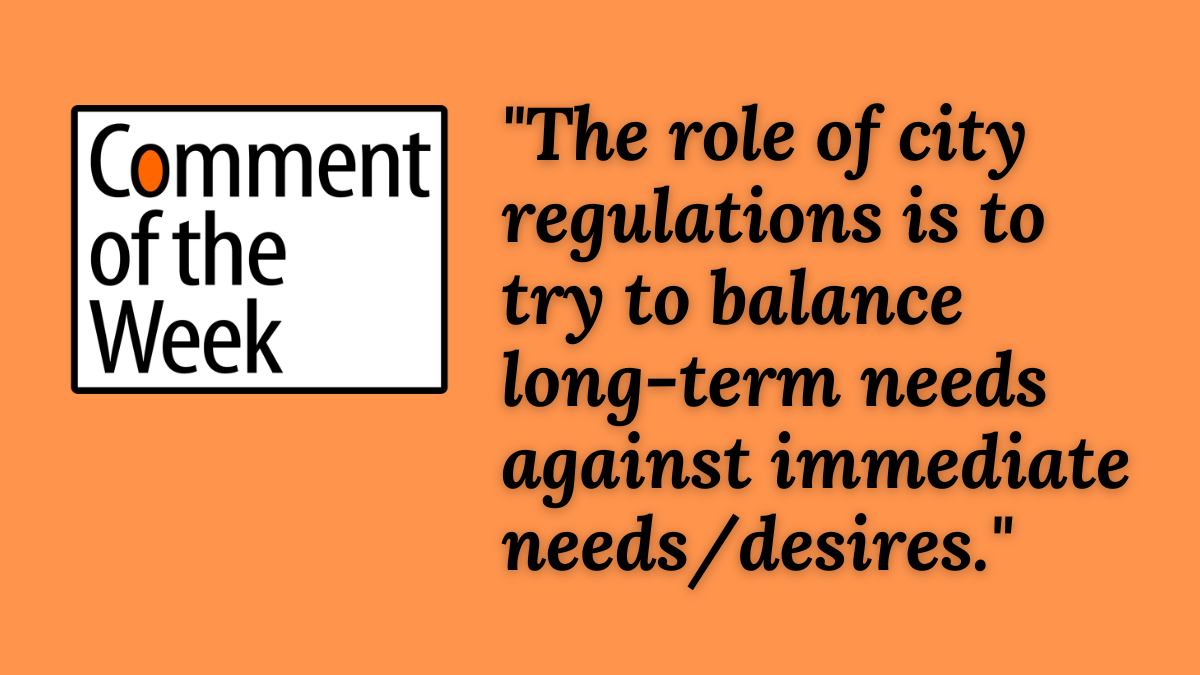There were a lot of excellent comments in response to our coverage of last week’s City Council Work Session on housing affordability. The whole thread is worth reading.
Bike parking regulations, in particular, have been targeted for potential code changes after being identified as a key impediment to quick housing production in a survey of development professionals earlier this year. At last Tuesday’s session, an economic consulting group working for the city put a price tag of $11,000 per unit as the cost of bike parking regulations, making their cost comparable to System Development Charges.
Many people have had a reaction to the $11,000/per unit figure, including our readers. The most interesting discussions I’ve seen this week have honed in on “opportunity cost.” The consultants arrived at the $11,000 amount by figuring how much income a developer was losing by not being able to rent that ground floor space to a retailer, so the “opportunity” of having bike parking costs the developer the loss of retail income. Several commenters disagreed with including opportunity cost in the calculation, some of them pretty colorfully.
But ED had even a more fundamental criticism which zeroed in on what the policy discussion should be. Policy has an eye toward the future, not just current day needs and desires. Here is what ED wrote in reply to qqq:
Yeah, we’ve been focused here on whether or not the bike parking regulations are onerous but you make great points about the ground floor active use requirements. I think what they have in common is that both are items that may not immediately translate into profits for developers – because of existing financing terms, market preferences etc – but may have long-term value that we collectively do not yet know how to value. Ground-floor retail that may be hard to rent today could be an amazing community space or vibrant business in 10-20 years; but if it’s not built today, there’s no chance for it to grow into that value. Bike parking and ground-floor retail can’t be easily retrofitted into existing apartment buildings. Hence, the role of city regulations is to try to balance long-term needs against immediate needs/desires. Does the current city code get it right prioritizing ground-floor retail and bike parking as a bet on the future we collectively want to see? Maybe! But that’s the really interesting policy discussion that should be had, in my opinion, rather than whether bike parking adds xx% to current construction costs or what the current utilization rates/trends are.
There are also other critiques of the consultant’s analysis that are worth reading, take a peek! Thank you ED, and all the other commenters, for this strong thread.


